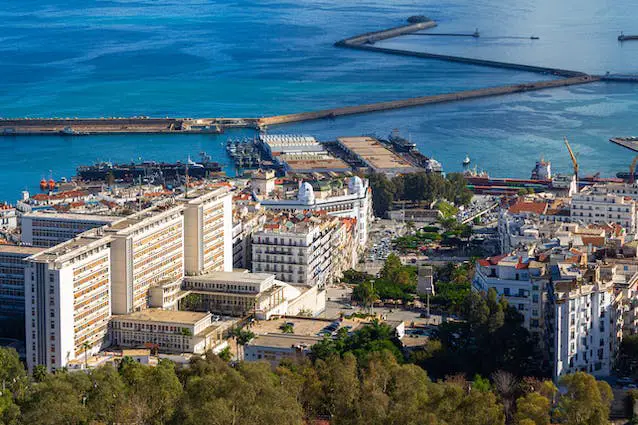Scholarship details
Are you passionate about conserving the world’s biological diversity, ensuring the sustainable use of renewable natural resources, and promoting the reduction of pollution and wasteful consumption? Do you want to pursue a master’s or doctoral degree in conservation and related fields? If yes, you might be interested in applying for the WWF Natural Sciences Master’s Doctorate Scholarship.
The WWF Natural Sciences Master’s and Doctorate Scholarship is a prestigious and competitive scholarship program that supports individuals from target countries to receive financial support for their studies and research. The scholarship is offered by the World Wildlife Fund (WWF), the world’s leading conservation organization that works in over 100 countries and has more than five million supporters globally. The scholarship is part of the Russell E. Train Education for Nature Program (EFN), which aims to build a network of conservation leaders and scientists who can address the most pressing environmental challenges of our time.
Scholarship Provider
The scholarship provider is the World Wildlife Fund (WWF). This international non-governmental organization works to conserve nature and reduce the most pressing threats to the diversity of life on Earth. WWF was founded in 1961 and has since become one of the world’s largest and most respected conservation organizations. WWF’s mission is to stop the degradation of the planet’s natural environment and to build a future in which people live in harmony with nature.
Eligible Applicants
The scholarship is open to nationals of eligible countries within the WWF-US priority areas: Belize, Brazil, Bhutan, Bolivia, Cambodia, Cameroon, Central African Republic, Chile, Colombia, Dem. Republic of Congo, Ecuador, French Guiana, Gabon, Guatemala, Guyana, Honduras, Indonesia, Kenya, Laos, Madagascar, Malaysia, Mozambique, Myanmar, Namibia, Nepal, Paraguay, Peru, Republic of Congo, Suriname, Tanzania, Uganda, and Vietnam. Applicants must be committed to conservation and have relevant work experience in the field. Applicants must also have a demonstrated financial need and a clear vision of how their studies and research will contribute to the conservation of their country or region.
Host Country
The scholarship can be used to pursue a master’s or doctoral degree in any country that offers a relevant program. Applicants can study in their own country, regionally, or globally, depending on their preference and the availability of suitable programs. Applicants are encouraged to consider the host institution’s quality and reputation, the program’s relevance and alignment to their research interests and career goals, and the potential impact of their studies and research on the conservation of their country or region.
Scholarship Worth
The scholarship covers the selected applicants’ tuition fees and living expenses for up to two years of study. Applicants can request up to $30,000 per year, depending on the program’s cost and the applicant’s financial need. The scholarship also provides mentoring and networking opportunities for the recipients and access to the global community of EFN alumni.
Level and Field of Study
The scholarship is available for master’s or doctoral programs in conservation and related fields. The fields of study can include, but are not limited to, ecology, biology, forestry, wildlife management, environmental policy, natural resource management, climate change, social sciences, and others. The scholarship is especially interested in supporting research that addresses the following themes:
- Food Systems: The social, cultural, economic, and environmental dimensions of food systems and transformation at the national level.
- Current and Aspiring University Faculty: To strengthen local capacity in Asia, Africa, Latin America, and the Caribbean, WWF seeks to support current and aspiring faculty members to pursue their PhD in-country, regionally, or globally.
How to Apply
Applicants must submit their completed proposals online via this link. The application consists of the following components:
- Personal information
- Academic information
- Proposed program of study and research
- Budget and financial information
- Letters of recommendation
- Supporting documents
Applicants should read the full grant guidelines and follow the instructions and criteria before applying. Applicants should also ensure that their proposals are clear, concise, and compelling and demonstrate their commitment to conservation, financial need, and potential impact.
Countries that can Apply
The scholarship is open to nationals of the following countries within the WWF-US priority areas:
- Belize
- Brazil
- Bhutan
- Bolivia
- Cambodia
- Cameroon
- Central African Republic
- Chile
- Colombia
- Dem. Republic of Congo
- Ecuador
- French Guiana
- Gabon
- Guatemala
- Guyana
- Honduras
- Indonesia
- Kenya
- Laos
- Madagascar
- Malaysia
- Mozambique
- Myanmar
- Namibia
- Nepal
- Paraguay
- Peru
- Republic of Congo
- Suriname
- Tanzania
- Uganda
- Vietnam
Eligibility Criteria
To be eligible for the scholarship, applicants must meet the following criteria:
- Be a citizen and legal permanent resident of an eligible country
- Have at least two years of relevant work experience in conservation
- Have a demonstrated financial need
- Have applied to or already enrolled in a qualified master’s or doctoral program
- Have a clear vision of how their studies and research will contribute to the conservation of their country or region
- Commit to return to their country or region and work in conservation for at least two years after completing their degree.
- Have not received any other EFN grant in the past
Scholarship Deadline
The application deadline is December 18, 2023, by 11:59 PM US Eastern Time. Applicants should submit their proposals as early as possible and avoid waiting until the last minute. Late or incomplete applications will not be accepted.
Scholarship Link
For more information about the scholarship, please visit the official website. You can also contact the EFN Program at [email protected] with any questions or concerns.









